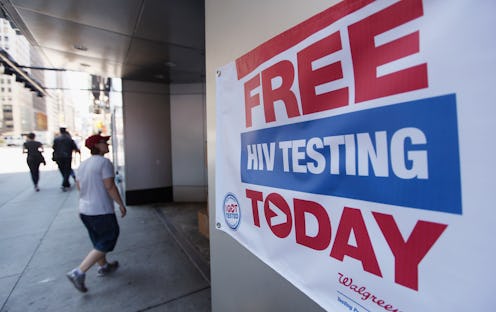News
Can This Gel (Nearly) Eliminate HIV in Women?
Some good news in the fight against HIV: Researchers have developed a gel that may protect women from HIV even after sex. In what may be a huge breakthrough, scientists successfully tested monkeys with the vaginal gel, which contains the antiretroviral drug raltegravir. The study did not protect all of the monkeys — one of six became infected with HIV — but if the gel proceeds to a human trial, it may prove extremely important because it can be applied both before and after sex.
Rowena Johnston, vice president of research for the Foundation for AIDS Research, implies that the gel could be used much like Plan B and other contraception .
"If you're having sex that's in any way not anticipated, you might not have an opportunity to apply the microbicide before the sex happens," Johnston says. "In the heat of the moment, you might not always have time to say 'Stop, put everything on hold while I put this product in.'"
Researchers are excited because the gel could be sold over the counter and widely available to victims of rape and domestic abuse around the world. While HIV would still exist of course, the study — published Wednesday in the journal Science Translational Medicine — shows that this gel could help stem the virus and protect future generations from contracting it. In Africa, it's estimated that 60 percent of HIV patients are women.
In the study, researchers found the gel to be effective in two out of three Macaques monkeys before they were exposed to the HIV virus. The scientists then applied the gel three hours after six monkeys were exposed to HIV, twice a week for more than two months, resulting in prevention for five monkeys.
The gel prevents the HIV's DNA from attaching to animal DNA.
But before we get too excited about the possibilities, some experts urge caution. The gel will not be ready for human trial for at least a few years. And success with monkeys doesn't always spell success with humans. Researchers conducted a similar study last year, but it was inconclusive because the African women being tested did not use the antiretroviral gel or pills consistently every day.
Nonetheless, the possibilities for this new gel — plus the news that a second baby was cured of HIV just last week — are very encouraging in the fight against HIV.
